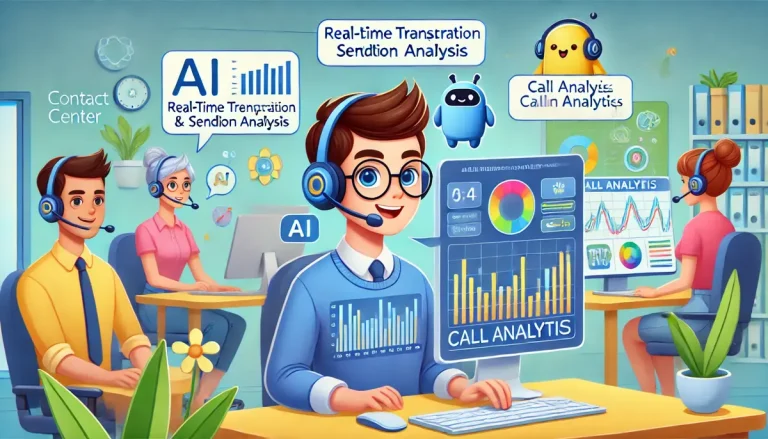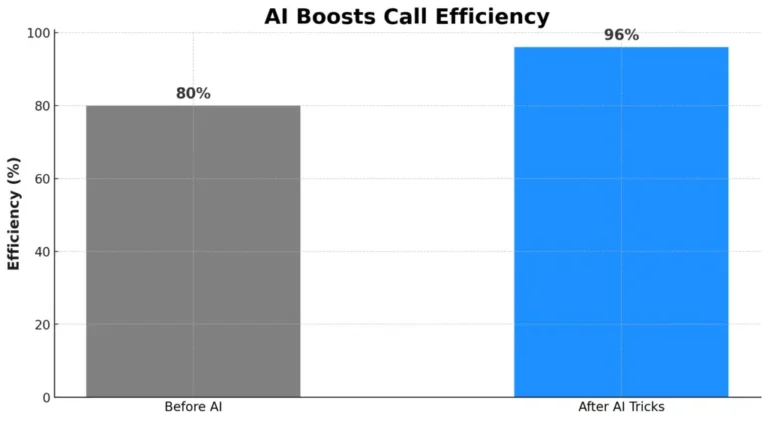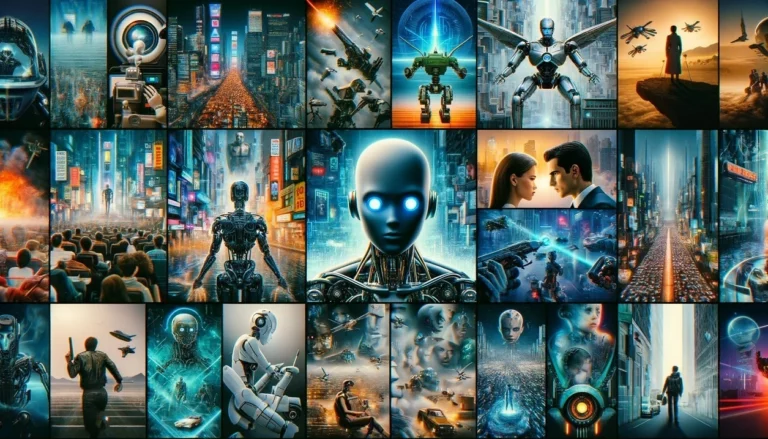Are you ready to transform your brand into a customer favorite? These interesting customer experience statistics and trends will help you reach your goal. And remember, these statistics aren’t just going to help you improve customer experience but sales revenue as well.
But before beginning with the interesting customer experience statistics and trends, we must start with the basics.
What is Customer Experience (CX)?

Customer experience (CX) encompasses every aspect of a business’s interactions that affect a customer’s perception and relationship with the brand.
Whether it’s a chat with a virtual receptionist, an engagement with an advertisement, or the smoothness of the checkout process, every touchpoint matters.
In essence, CX is the heartbeat of your brand’s relationship with its customers, pulsing through every interaction, big or small.
The Impact of Customer Experience on Business Success
Happy customers are the lifeblood of any thriving business. When positive, their experiences nurture loyalty and transform them into advocates for your brand.
In fact, embracing customer experience statistics and trends reveals a clear picture: companies that excel in CX grow revenues significantly faster than their competitors.
Each positive interaction increases the likelihood of repeat business and recommendations, effectively boosting your bottom line.
Understanding Your Customers
To deliver outstanding customer experiences, you must first understand who your customers are, their desires, and what frustrates them.
This involves diving deep into their wants, needs, and pain points.
The most successful companies grasp these customer expectations and seamlessly integrate solutions into every part of the customer journey.
Implementing Effective Customer Experience Strategies
Implementing an effective CX strategy requires a thoughtful approach tailored to your customers’ expectations.
This could mean redesigning your website to ensure it’s user-friendly, training your staff to handle inquiries with empathy and efficiency, or leveraging technology to provide timely and personal customer support.
Whatever the approach, the goal is to make each customer feel valued and understood.
Top Customer Experience Statistics and Trends
Here are a few customer experience statistics and trends you must know before it’s too late:
- Companies leading in customer experience see revenue growth of 4%-8% above their market average.
- Promoters, with their strong loyalty, offer 6-14 times the lifetime value compared to detractors.
- A 2% increase in customer retention can equal the profit impact of a 10% cost reduction.
- After poor experiences, 89% of consumers have switched to competing brands.
- Good customer experience brands generate revenues 5.7 times higher than those who don’t.
- Positive customer experiences lead to 140% greater customer spending, and customers are more willing to pay a 16% premium for excellent customer experiences.
- Customer-focused companies achieve 60% higher profitability.
- Over 89% of businesses identify customer experience as key to loyalty and retention.
- For 96% of customers, customer service quality affects brand loyalty.
- Companies with engaged employees outperform others by 147%.
- Improving customer experience leads to revenue growth for 84% of companies.
- 82% recognize customer experience as a crucial competitive differentiator.
- 81% of businesses prioritize customer experience over other factors.
- 77% of marketing leaders use automation to enhance customer experience.
- 93% of marketers note a significant impact of inbound calls on profits.
- Cloud technology influences customer experience positively in 71% of companies.
- 65% highlight the importance of improved data analysis for better customer experience.
- Customer feedback shapes the strategies of 52% of marketers.
- In 2022, companies focus on using micro-moments for personalized customer interactions.
- 67% of leaders believe their companies would lose competitiveness without digital transformation.
- Omnichannel experience investment has grown from 20% to over 80% of businesses.
- Utilizing customer journey mapping can reduce service costs by 15%-20%.
- 84% of customer-centric organizations prioritize mobile experiences.
- Mobile devices drive up to 70% of web traffic.
- Mobile-friendly support options are preferred by 52% of Americans.
- 78% of consumers find SMS the fastest communication method with brands.
- 60% of customers still prefer human interactions over automated services.
- Consistency across all interaction channels is demanded by 76% of customers.
- 80% of customers prefer personalized interactions.
- Personalization efforts have shown measurable benefits for 88% of U.S. marketers.
- More than half of consumers expect personalization based on past interactions.
- Impersonal shopping experiences frustrate 71% of consumers.
- 72% of consumers respond only to personalized marketing.
- Millennials particularly dislike irrelevant marketing emails.
- Personalization is crucial for 80% of frequent shoppers.
- Digital self-service channels are favored by over 60% of customers.
- 81% try self-help options before contacting customer service.
- Live chat has positively impacted sales and customer loyalty in 79% of businesses.
- 88% of customers expect online self-service support options.
- The conversational AI market is expected to reach nearly $14 billion by 2025.
- AI is anticipated to drive 95% of customer interactions by 2025.
- Customer-centric strategies have resulted in 60% higher profits.
- Personal technology will dominate user experiences by 2030.
- By 2030, 1 billion service tickets will be automatically generated by customer bots.
- Investment in marketing automation tools will surpass $25 billion by 2023.
- Businesses planning to increase customer service budgets within a year make up 80%.
- Companies providing quick problem resolutions have customers 2.4 times more likely to stay loyal.
- 72% of consumers demand immediate service.
- Businesses that personalize service interactions see higher customer spending and satisfaction rates.
- Seventy percent of consumers expect representatives to understand their issues fully.
- Forty-eight percent of consumers expect special treatment for being good customers.
- Customer experience improvements through AI and automation are accelerating across industries.
- Eighty percent of executives report noticeable improvements in customer satisfaction from using conversational AI.
- The global conversational AI market is expected to grow by 22% annually from 2020 to 2025.
- Fifty-seven percent of business leaders believe conversational chatbots deliver a high return on investment.
- Over half of support teams are incorporating conversational AI tools for customer-facing services.
- By 2027, chatbots will become the primary service channel for about a quarter of organizations.
- Seventy-seven percent of businesses are currently using or exploring AI technologies.
- AI has the potential to boost business productivity by up to 40%.
- Seventy-two percent of business leaders prioritize expanding AI in customer interactions over the next year.
- AI is viewed by 72% of executives as the most significant future business advantage.
- Sixty-eight percent of business leaders plan to increase their AI investments.
- Nearly all CX leaders invest in data integration technologies to improve customer experiences.
- Merging customer-facing teams is seen by 72% of leaders as a way to increase operational efficiency.
- Access to more tools and data is believed by 74% of agents to allow for better personalized interactions.
- The most significant barrier to leveraging customer data, as reported by 54% of organizations, is fragmented or siloed data.
- Online shoppers are more likely to purchase on websites offering personalized experiences.
- Consumers expect businesses to utilize their data for personalized experiences, according to 59% of consumers.
- Sixty percent of consumers are likelier to become repeat buyers after personalized experiences.
- Personal data sharing is an acceptable trade for enhanced customer experiences for 66% of consumers.
- 62% of consumers prefer personalized recommendations over generic ones.
- Eighty-six percent of B2B customers expect companies to be well-informed about their personal information during interactions.
- Companies with strong personalization strategies generate 40% more revenue than their slower-growing peers.
- More than 60% of customers prefer digital self-service channels like websites and mobile apps.
- Customer service chatbot interactions are deemed “very effective” by 30% of U.S. consumers.
- The expected spend on customer experience technologies was $641 billion in 2022.
- By 2023, AI is expected to automate 40% of all customer interactions.
- Digital experiences will dominate 90% of all customer spending by 2025.
- Marketing, sales, and customer experience will merge into a single function in 25% of companies by 2023.
- Seventy-three percent of consumers consider customer experience the primary factor in purchasing decisions.
- Poor customer experiences caused 49% of consumers to abandon a brand they had been loyal to.
- Sixty percent of consumers have chosen one brand over another because of the expected service quality.
- Quick resolution of problems leads to greater customer retention, as seen in brands with a 72% immediate service response rate.
- Full context knowledge during interactions is expected by 70% of customers.
- Specialized treatment for loyalty is expected by 48% of consumers.
- Companies are making shifts in focus towards optimal customer experiences and interaction automation.
- Executives have reported improvements in service delivery and customer satisfaction from AI implementations.
- The conversational AI market’s strong growth forecasts substantial industry changes by 2025.
- Minimal investment in chatbots has yielded significant returns for 57% of business leaders.
- Conversational AI platforms are being utilized by 54% of customer service teams.
- By 2027, many organizations expect chatbots to be their main customer service channel.
- AI utilization is now a common practice or under consideration in 77% of companies.
- Improving productivity through AI is a focus for business leaders aiming for a 40% increase.
- Expanding AI applications in customer service is a priority for 72% of leaders over the next year.
- 72% of executives believe AI will offer the most significant business benefits moving forward.
- Investment in AI is being ramped up by 68% of business leaders.
- Data integration is a key focus for CX leaders aiming to improve service delivery.
- Operational efficiency is expected to improve with integrated customer service teams, according to 72% of leaders.
- 74% of service agents see enhancing personalization in customer interactions as crucial.
- Fragmented or siloed data is cited as a significant barrier to practical data usage by 54% of organizations.
- Eighty-eight percent of online shoppers prefer engaging on websites offering personalized interactions.
- Fifty-nine percent of consumers believe businesses should use collected data to enhance personalization.
- Personalized shopping experiences turn 60% of consumers into repeat buyers.
- Two-thirds of consumers are willing to share personal data if it improves their customer experience.
- Sixty-two percent of consumers favor personalized recommendations over generic ones.
- Most B2B customers (86%) expect personalized information during interactions.
- Personalization contributes 40% more revenue for faster-growing companies than their slower peers.
- Digital self-service for those who prefer digital self-service channels for convenience and efficiency.
- Thirty percent of U.S. consumers find customer service chatbot interactions very effective.
- By 2023, it’s anticipated that customer interactions automated through AI will constitute 40% of the total.
- Digital experiences are expected to account for $9 out of every $10 consumers spend by 2025.
- A unified approach integrating marketing, sales, and CX is planned by 25% of companies by 2023.
- Customer experience is rated as the top consideration in purchasing decisions by 73% of consumers.
- Forty-nine percent of customers have abandoned a brand due to poor customer experiences.
- Sixty percent of customers have favored a brand based on anticipated superior service.
- Brands offering quick resolutions are 2.4 times more likely to remain loyal.
- Seventy-two percent of consumers expect immediate responses to service inquiries.
- Knowledgeable and contextual interaction is demanded by 70% of customers.
- Forty-eight percent of customers expect to receive special treatment for their loyalty.
- The adoption of AI and automation in customer service is increasing, enhancing the customer experience significantly.
- Positive impacts on customer satisfaction and service delivery have been reported by 80% of executives using AI.
- The conversational AI market is projected to grow significantly, reaching nearly $14 billion by 2025.
- Chatbots are expected to be the primary service channel for many companies by 2027.
- AI adoption is now mainstream or under exploration in 77% of businesses.
- Business productivity enhancements through the use of AI.
- Over the next year, 72% of leaders are focused on expanding AI across customer interactions.
- AI is regarded as a key business advantage for the future by 72% of executives.
- 68% of business leaders plan to increase investments in AI to leverage its benefits.
- Nearly all CX leaders invest in technologies to ensure data integration, integrity, and enrichment.
- Seventy-two percent of leaders see merging customer service teams as a way to boost efficiency.
- Seventy-four percent of customer service agents believe more tools and access to data would enable better personalization.
- The challenge of fragmented or siloed information is the main hurdle in leveraging customer data, as identified by 54% of organizations.
- An overwhelming majority of online shoppers (88%) prefer websites that tailor the customer experience.
- Personalization based on customer data is expected by 59% of consumers.
- Creating repeat customers is significantly influenced by personalized experiences, with 60% of consumers returning for more.
- Sharing personal data for a better experience is acceptable to 66% of consumers.
- Personalized service over impersonal service recommendations.
- Personalization is critical for retaining B2B clients, with 86% expecting businesses to know their details during interactions.
- Personalization efforts are linked to 40% higher revenues among the faster-growing companies.
- Digital self-service options are convenient for more than 60% of customers.
- Effective chatbot interactions are acknowledged by 30% of consumers as very effective.
- By 2025, AI is expected to handle 95% of all customer interactions.
- Integrated marketing, sales, and customer experience strategies are being adopted by 25% of companies.
- The critical importance of CX in purchase decisions is emphasized by 73% of consumers.
- Loss of customer loyalty due to inadequate CX is reported by 49% of customers.
- Customer choice is increasingly influenced by expected service quality, with 60% opting for brands with better service.
- Quick problem resolution significantly increases customer loyalty, as evidenced by 72% of brands offering immediate service.
- The expectation for knowledgeable service interactions is held by 70% of customers.
- A personalized and special treatment for loyal customers is expected by 48% of the consumer base.
Conclusion
Today, customer expectations are higher than ever, and the quality of customer experience can set your brand apart.
By prioritizing and continuously improving your customer experience, you meet and exceed these expectations, ensuring your business survives and thrives in today’s competitive environment.








